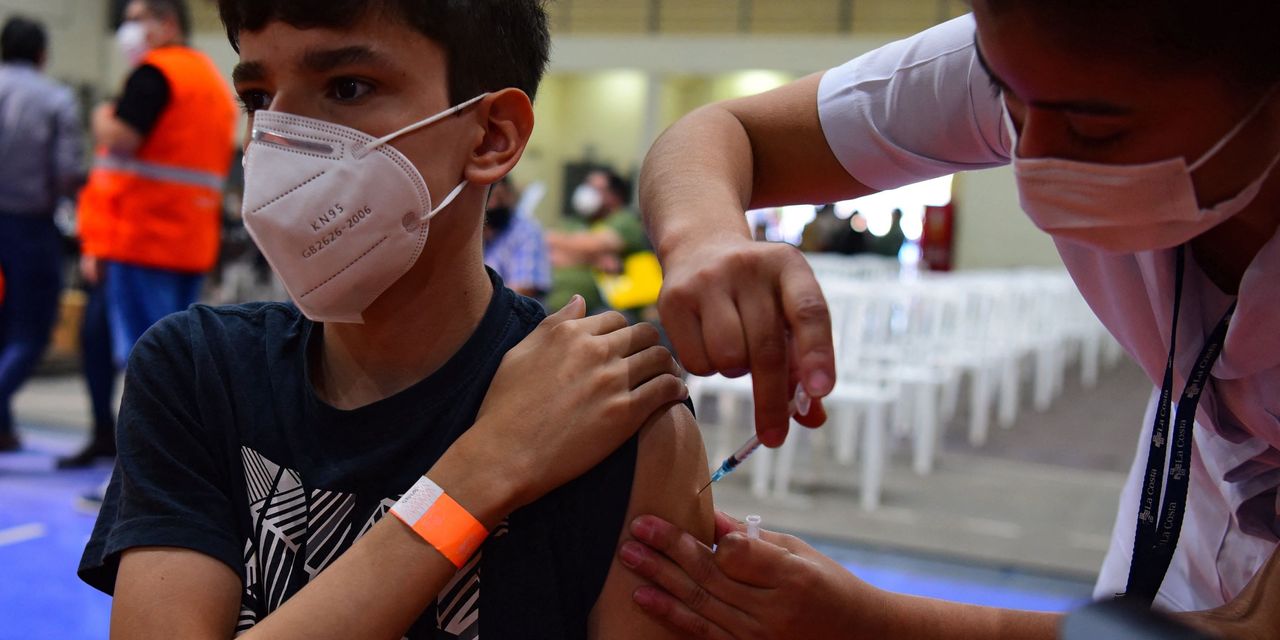
A new study primarily conducted in 2020 and before the emergence of the delta variant has shown that few children who become sick with COVID-19 suffer the long-term symptoms that have plagued some adults.
The research, published in The Lancet Child and Adolescent Health on Tuesday, is based on data from 1,734 U.K. children between the ages of 5 and 17 years old whose parents voluntarily use the ZOE COVID Study smartphone app.
Those children in the study tested positive for COVID-19 and were symptomatic between Sept. 1, 2020, and Jan. 24, 2021. The most common symptoms reported were headache, fatigue, loss of smell, and a sore throat. Median symptom duration lasted around six days, though it was slightly longer — 7 days — for children aged 12 to 17. Symptoms for those aged five to 11 were shorter, lasting five days.
The study found 4.4% of the children suffered symptoms for at least 28 days, and those symptoms were more common in the older children. However, 1.8% had symptoms for at least 56 days, which is considered by some definitions to be post-acute COVID-19, or Long COVID.
Read: Global cases of COVID-19 near 200 million and FDA seeks full approval of Pfizer vaccine by Labor Day
“Short-term and long-term effects of COVID-19 on school performance and learning have been a matter of concern. In our cohort, attentional problems, memory complaints, and anxiety were not reported, and cases of low mood and irritability were consistent with previous school-aged population data,” said the researchers.
And while some of those children did experience prolonged illness, “reassuringly, symptom burden in these childrend did not increase with time, and most recovered by day 56,” they said.
It’s unclear if the data in the Lancet study will hold up against the delta variant, given the data was collected primarily in 2020. But Michael Absoud, a senior lecturer at King’s College London who helped author the study, told The Guardian that U.K. data doesn’t show that SARS-CoV-2 infections from the delta variant were more severe among children compared with the alpha variant, which was previously the dominant one.
In the U.S., Pfizer Inc.’s vaccine is available to children 12 and over, but European countries have been divided about dosing younger people. Spain last month began vaccinating the 16 and up category, while Germany said this week that it will start to offer vaccines for 12 and up.
For now, kids younger than 12 in the U.S. and elsewhere do not have an option for vaccines, which are still being tested in clinical trials.
Sending children back to school in the fall has raised concerns given the fast-spreading delta variant that has been sweeping across countries.
The American Academy of Pediatrics said Tuesday that about 72,000 new COVID-19 cases among children had been reported the past week, up from 39,000 in the previous week. Some medical professionals have taken to Twitter to report a rise of sick kids at their own hospitals.










Add Comment